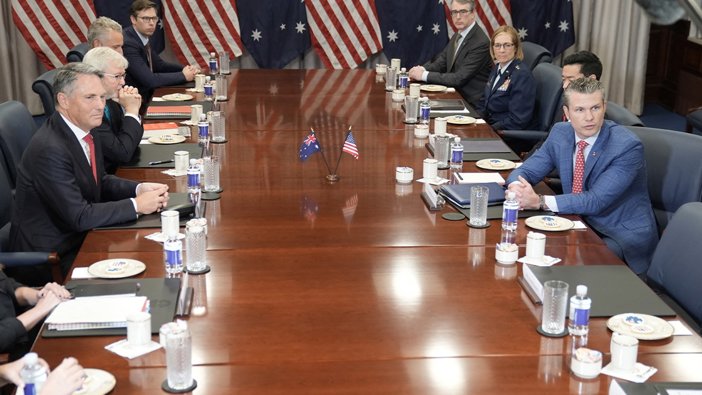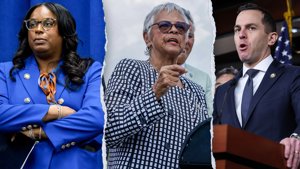
Pentagon Pushes Allies on Taiwan, Australia Resists Troop Pledge
Pentagon urges Japan and Australia to clarify their roles in a Taiwan conflict, but Australia withholds troop commitment.
U.S. Pressures Allies as China Escalates Taiwan Tensions
The Pentagon is increasing pressure on Indo-Pacific partners Japan and Australia to define their military commitments in the event of a conflict with China over Taiwan, according to senior defense officials. The request, raised in recent meetings by Pentagon policy chief Elbridge Colby, represents a shift from the traditional U.S. call for increased allied defense spending to a demand for specific wartime pledges.
This strategy reportedly caught Japanese and Australian officials off guard. In response, Australian Defense Minister Pat Conroy emphasized that decisions about deploying Australian troops would be made by the sitting government at the time of any crisis, not in advance. “We won’t discuss hypotheticals,” Conroy stated in a public interview, underlining Canberra’s reluctance to commit to any pre-set military action.
The issue comes as the United States and Australia lead a major joint exercise in Sydney involving 30,000 troops from 19 countries, underscoring ongoing defense cooperation but also the complexity of formalizing mutual commitments in advance of conflict.
Strategic Ambiguity and Allies’ Role in U.S. Planning
The Pentagon’s push is seen in part as a response to China’s growing military activity around Taiwan. Officials have compared the effort to NATO’s push for higher European defense spending and collective action. Colby, speaking publicly, insisted that “we at DOD are focused on implementing the president’s America First, common-sense agenda of restoring deterrence and achieving peace through strength. That includes urging allies to step up their defense spending and other efforts related to our collective defense.”
Washington’s “strategic ambiguity” regarding Taiwan further complicates alliance planning. While the U.S. has not explicitly stated it would defend Taiwan if attacked, President Donald Trump has maintained this policy, though private comments to donors suggested he has threatened strong military action against both China and Russia in private conversations. “If you go into Taiwan, I’m going to bomb the [expletive] out of Beijing,” Trump reportedly told Chinese officials, according to new audio. However, he has also criticized the cost of defending Taiwan, calling for the island to invest more in its own military capabilities.
Japan’s Critical Role and Regional Defense Dynamics
Military analysts point out that Japan would be the most essential ally in a potential Taiwan conflict, due both to its proximity and the importance of U.S. bases on Japanese territory. “Japan is always critical, and when I say critical, like we can't win the war without them,” explained Mark Cancian, a defense expert who regularly advises U.S. lawmakers. The United States and Japan have already practiced relocating forces to the Ryukyu island chain, which lies just 80 miles off the coast of Taiwan.
South Korea’s stance limits U.S. options, as it has not permitted American forces to launch combat operations from its territory in the event of a Taiwan conflict. Australia, meanwhile, does not allow permanent foreign bases, though the U.S. is expanding its rotational presence at Australian military facilities.
Colby’s push for clearer allied roles also follows his initiation of a review of the AUKUS security pact, which would eventually provide Australia with U.S.-built nuclear submarines. Despite this, concerns persist over America’s capacity to produce enough submarines for both its own navy and allies.
As the Pentagon continues to urge greater allied contributions and clarify expectations, the evolving regional defense landscape underscores both the opportunities and challenges facing U.S. strategy in the Indo-Pacific. The outcome will likely influence not only the future security of Taiwan, but the broader regional balance as China asserts its ambitions.






